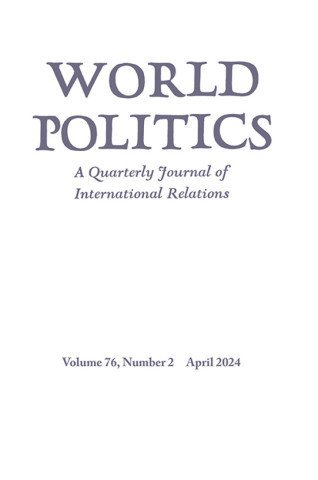民主焦虑时代的概念畸形:最近的诱惑及其弊端
IF 4.5
1区 社会学
Q1 INTERNATIONAL RELATIONS
引用次数: 0
摘要
摘要:尽管乔瓦尼-萨托利(Giovanni Sartori)提出了著名的警告,但当代学术界出现了新一轮的概念延伸,政变和法西斯主义等术语的宽松、扩张性使用就是明证。这种概念蠕变反映了近几十年来的规范进步,它排除了真正的法西斯主义,阻止了全面政变。由于这些规范上的进步诱使其余的邪恶行为者通过正式的民主程序来实现其不民主的目标,因此模糊的概念界限变得模糊不清。文章认为,在研究这一灰色地带时,学者们可能会过度使用戏剧性术语,因为对民主面临的新威胁的担忧促使人们转向公共知识分子和民主参与。此外,社交媒体的激增加剧了争夺公众注意力的激烈竞争,这可能助长了对尖锐警告的偏好。作者认为,由此产生的概念拉伸破坏了学术研究所需的清晰度和准确性,而这种不精确也会对学者的规范性关注产生反作用。过度使用戏剧性术语可能会扭曲对问题的诊断,加剧两极分化,从而强化当代民主所面临的危险,而这种危险主要来自于非自由主义的民粹主义所带来的具体挑战。本文章由计算机程序翻译,如有差异,请以英文原文为准。
Concept Misformation in the Age of Democratic Anxiety: Recent Temptations and Their Downsides
abstract: Despite Giovanni Sartori’s famous warning, contemporary academia has seen a new bout of conceptual stretching, as evident in the loose, expansive usage of terms such as coup and fascism . This concept creep reflects the normative progress of recent decades, which has ruled out true fascism and deterred full-scale coups. Because these normative advances have induced remaining nefarious actors to pursue their undemocratic goals through formally democratic procedures, ambiguity has blurred conceptual boundaries. The article posits that when examining this gray area, scholars may be tempted to overuse dramatic terms because concern about new threats to democracy has motivated a turn to public intellectualism and democratic engagement. Moreover, the proliferation of social media has fueled stiff competition for public attention, which may have helped to create a penchant for stark warnings. The author argues that the resulting conceptual stretching undermines the clarity and accuracy required for academic scholarship and that such imprecision can also be counterproductive for scholars’ normative concerns. The overuse of dramatic terms risks distorting problem diagnosis, exacerbating polarization, and thus reinforcing the danger facing contemporary democracy, which arises primarily from the specific challenges that illiberal populism poses.
求助全文
通过发布文献求助,成功后即可免费获取论文全文。
去求助
来源期刊

World Politics
Multiple-
CiteScore
8.40
自引率
0.00%
发文量
24
期刊介绍:
World Politics, founded in 1948, is an internationally renowned quarterly journal of political science published in both print and online versions. Open to contributions by scholars, World Politics invites submission of research articles that make theoretical and empirical contributions to the literature, review articles, and research notes bearing on problems in international relations and comparative politics. The journal does not publish articles on current affairs, policy pieces, or narratives of a journalistic nature. Articles submitted for consideration are unsolicited, except for review articles, which are usually commissioned. Published for the Princeton Institute for International and Regional Affairs
 求助内容:
求助内容: 应助结果提醒方式:
应助结果提醒方式:


